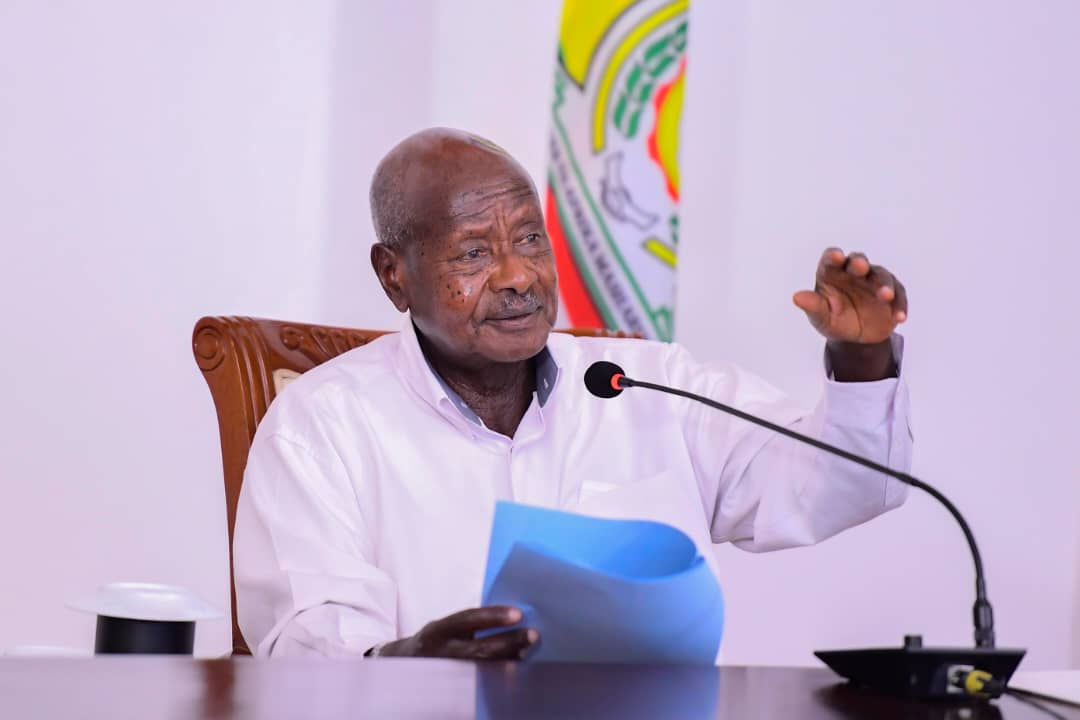The Presidential Press Unit (PPU) has announced that President Yoweri Kaguta Museveni will deliver a national address tomorrow, Saturday, January 25, 2025, at 8:00 PM.
The address comes ahead of the 39th National Resistance Movement/Army (NRM/A) Liberation Day Anniversary, scheduled to take place on Sunday at the National Teachers College Grounds in Mubende District.
The address will be broadcast live on all radio stations, television channels, and online platforms to ensure wide accessibility for the public.
The 39th NRM/A Liberation Day marks the commemoration of the movement’s triumph in the 1986 liberation struggle. The celebrations in Mubende District are expected to draw government officials, dignitaries, and citizens from across the country.
The public has been encouraged to tune in to follow the President’s address, which is expected to touch on the significance of the upcoming celebrations, national issues, and key government priorities.
This year’s theme is “39 Years of NRM/A: Salutations to Those Who Re-Sanctified Our Homeland.”
President Yoweri Kaguta Museveni will honor 61 public servants who excelled in organizing the Non-Aligned Movement and G77 plus China summits in Kampala. A health camp is currently underway at the Mubende regional referral hospital, providing free eye care services, including the distribution of over 600 eyeglasses and conducting surgeries for people of the Greater Mubende area.
Over the past 39 years, the National Resistance Movement (NRM) government has implemented various initiatives across multiple sectors to foster national development. Key among the achievements is strengthening national security, leading to enhanced stability.
Significant investments have been made in infrastructure, including the expansion of road networks, energy projects, and communication systems. These developments have improved connectivity and facilitated economic activities across the country.
The NRM government has focused on economic diversification and growth. Notable achievements include increased exports of tea and coffee, with Uganda exporting 60 million kilograms of tea and 70 million bags of coffee. Additionally, the production of cotton has risen, and tourism has become a significant contributor to the national economy.
Efforts to enhance healthcare services have been evident, with initiatives aimed at providing promotive, preventive, curative, and palliative care to all Ugandans. The government has worked towards improving the quality and accessibility of health services nationwide.
The NRM has invested in the education sector, focusing on increasing access to education and improving the quality of learning. Initiatives have been implemented to enhance literacy rates and educational infrastructure.
Programs targeting the empowerment of youth and women have been introduced, aiming to provide opportunities for these groups in various sectors, thereby promoting inclusivity and economic participation.
The government has undertaken projects to improve water supply and sanitation facilities, contributing to better public health outcomes and quality of life for citizens.
The NRM has engaged in strengthening international and regional ties, fostering cooperation that has benefited trade, security, and diplomatic relations.
Speaking at the Uganda Media Center earlier this week, the State Minister for Kampala Metropolitan affairs highlighted some of the achievements’.
Hon. Kyofatogabye emphasized Uganda’s strides in agricultural transformation.
“We have moved from subsistence farming to commercialized agriculture, diversifying crops such as bananas, cassava, milk, fruits, palm oil, cocoa, fish, and beef,” he said.
He noted the government’s efforts in adding value to agricultural products like cotton, fruits, and milk, which have significantly boosted exports.
Programs like the four-acre model, Emyooga, the Parish Development Model, and the Youth Livelihood Program were highlighted as key initiatives driving rural communities to participate in the money economy. “These programs have empowered Ugandans to become self-reliant and embrace entrepreneurship,” he added.
The NRM government’s investment in industrialization and innovation was also underscored.
“Through ventures like Kiira Motors, we have entered the automobile industry, producing vehicles that are uniquely Ugandan,” Hon. Kyofatogabye remarked. He highlighted that this has created jobs and spurred technological advancements.
In the health sector, Uganda has made significant strides in vaccine production. “We are now producing vaccines locally, reducing dependency on imports and ensuring the health security of our nation,” he said. This is part of the broader knowledge economy initiative that aligns with the country’s development goals.
Uganda’s economy has grown from a GDP of USD 1.5 billion in 1986 to USD 55 billion today, with a vision to reach USD 550 billion in the next decade.
Hon. Kyofatogabye attributed this growth to the NRM’s strategic policies and development agendas.




